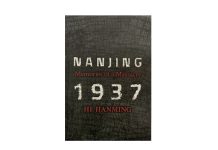From Liu Jun
We live in a world where the growth momentum has weakened, and countries have taken on divergent recovery paths. Uncertainties in global trade, geopolitical tensions and monetary policies further complicate the picture. But despite the ups and downs of the global economy, China benefits from an integrated world as much as the world benefits from a prosperous China.
China remains a major global economic player as the world’s second-largest economy. Yet an important but often overlooked question is: “What does China really mean to the global economy?”
The answer becomes apparent through the lens of concrete historical data.
During the 1997 Asian financial crisis, the stability of the renminbi was critical to preventing risk escalation, while the 2008 global financial crisis saw China’s economic stimulus package helping other economies emerge out of recession. And during the 2011 European Union debt crisis, China increased exports to Europe to help ease the pressure the crisis had caused. Besides, amid the US-China trade tensions in 2018, China acted as a responsible global player through active negotiations and concrete actions. During the three-year COVID-19 pandemic through delivering a swift rebound and a robust prop-up in manufacturing, China further demonstrated its pivotal role in the global supply chains. By 2023, China had consistently contributed more than 30 percent to the global GDP growth for a decade.
At each critical moment of global or regional economic crises, instead of being the “next domino to fall” as many estimated, China positioned itself as a cornerstone and stabilizer of the global economy. The reasons for that are fourfold.
First, China has the most comprehensive industrial system in the world. It is the only country with all the industrial categories defined by the UN International Standard Industrial Classification of All Economic Activities. China became the world’s leading manufacturer in 2010 and has maintained that status till date. In 2023, China accounted for about 35 percent of the global manufacturing output and 30 percent of the added value, according to the Organisation for Economic Co-operation and Development. China’s economy of scale and interwoven industrial chain boost efficiency and reduce costs for itself as well as the rest of the world.
The world’s access to affordable, high-quality, made-in-China products plays a crucial role in tempering global inflation. Since 2020, geopolitical tensions and the West’s efforts to “decouple” from the Chinese economy have disrupted global supply chains. While the US and the EU were busy sounding alarm bells of inflation, China kept its consumer price index at a reasonable level. As such, China’s critical contribution to stimulating global economic growth while managing inflation merits greater recognition.
Second, China pledges to adhere to the rulebook in global trade and beyond. Allegations that China is a rule-breaker are groundless given the hard evidence that prove otherwise. Since joining the World Trade Organization, China has amended thousands of laws and regulations — 2,300 at the central level and 190,000 at the local level — to ensure conformity with the WTO rules and its commitments.
As of 2021, China has successfully reduced its import tariff to 7.4 percent, well below its initial commitment of 9.8 percent, down to the levels seen in developed countries. And it has withdrawn non-tariff restrictive measures significantly, including such as import quota, as promised.
As a matter of fact, China’s adherence to rule-based engagement in international trade has been richly rewarded, as it now stands at the very heart of global commerce. It ranks No 1 in the world in terms of trade in goods and second in terms of services. China has also forged strong partnerships with more than 140 countries. Having gained and done so much in the global commercial ecosystem, China would be the last one to break it.
So even in the face of the complexity of modern trade, China will continue to be a dedicated player, working with other countries to perfect the rules. With development programs such as Belt and Road Initiative, the WTO reform proposal and membership of the Regional Comprehensive Economic Partnership, China has contributed to refinement of the global trading system. Giving a voice to all participants, big or small, South or North, developed or underdeveloped, is the key to devising fairer and more nuanced global economic norms. –The Daily Mail-China Daily news exchange item





